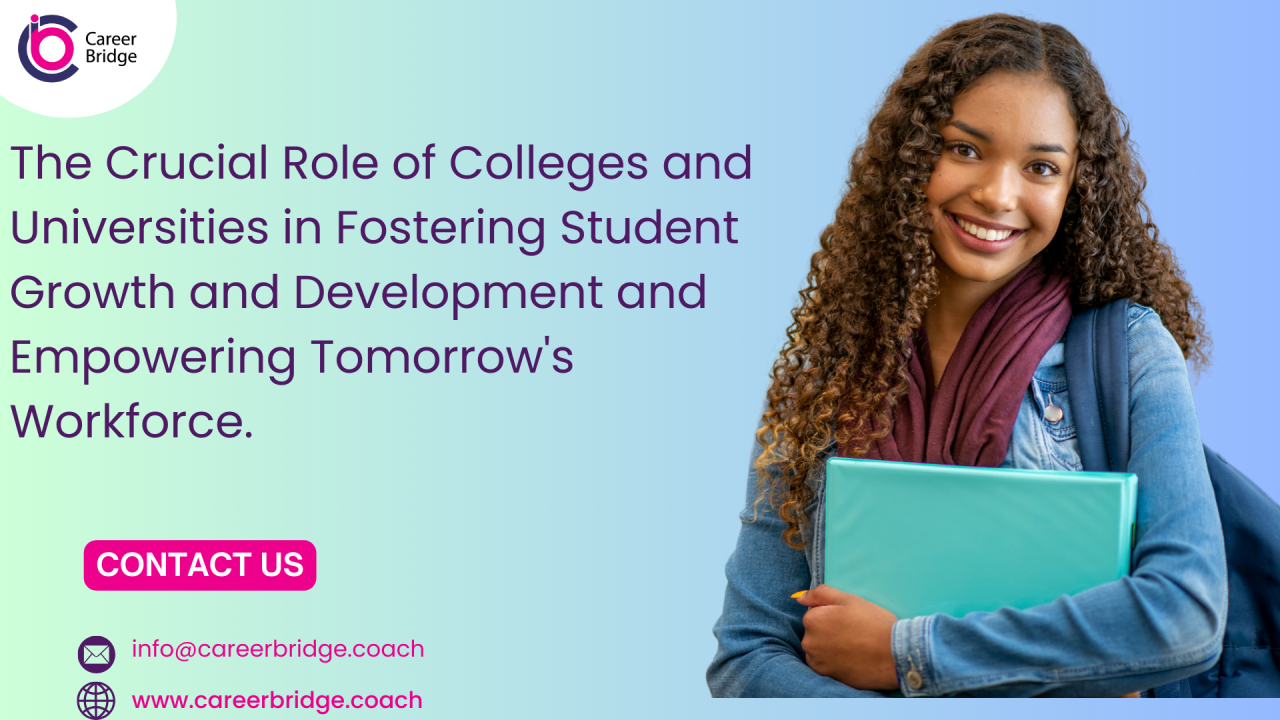
Beyond just teaching academics, schools can foster a students’ holistic development in their relationships, identity, emotional skills, and overall well-being.
As students prepare for the job market, the significance of education extends far beyond the classroom. Schools serve as the foundational platforms where students not only acquire knowledge but also develop the critical skills and attributes essential for their success in the professional realm. As college students transition into the employability world, it's imperative for educational institutions to play an active role in nurturing their growth and preparing them for the challenges ahead.
Here's how schools can actively contribute to the holistic development of their students, fostering their employability and success:
While technical expertise is undoubtedly valuable, employers today increasingly prioritize soft skills such as communication, teamwork, problem-solving, and adaptability. Schools should integrate these skills into their curriculum through interactive school projects, group activities, and real-world simulations. Encouraging students to participate in extracurricular activities, internships, and community service further hones these essential abilities.
Many students embark on their career journeys without a clear understanding of their strengths, interests, or the opportunities available to them. Schools can bridge this gap by offering comprehensive career guidance services and mentorship programs. By connecting students with professionals in their fields of interest, schools provide invaluable insights, networking opportunities, and practical advice that can significantly enhance students' employability prospects. Schools can also partner with third party organizations and career coaches and experts who offer guidance on career paths.
The rapid pace of technological advancement necessitates that students possess up-to-date skills, knowledge and proficiency in industry-relevant technologies. Schools should incorporate training in emerging technologies, digital literacy, and data analysis into their curriculum. Guest lectures, career coaches, workshops, and partnerships with industry leaders can expose students to current career trends and best practices, ensuring they remain competitive in the job market.
In the dynamic workspace, entrepreneurship and innovation are catalysts for economic growth and societal progress. Schools can foster an entrepreneurial mindset among students by promoting creativity, risk-taking, and problem-solving skills. Entrepreneurship courses, startup incubators, and pitch competitions provide students with the resources and support needed to turn their innovative ideas into tangible ventures, empowering them to become leaders and change-makers in their respective fields.
The ability to navigate challenges, setbacks, and interpersonal dynamics is paramount in the professional world. Schools should prioritize the cultivation of emotional intelligence, resilience, and self-awareness among students. Counseling services, career coaching sessions, mindfulness practices, and peer support initiatives create a nurturing environment where students can develop the mental and emotional fortitude necessary to thrive in diverse work settings.
Embracing a holistic education approach that recognizes the importance of nurturing students' intellectual, emotional, social, and physical well-being is crucial. Schools should incorporate activities and programs that encourage students to explore diverse interests, develop critical thinking skills, and foster creativity. Moreover, create a supportive learning environment that promotes inclusivity, collaboration, and open communication. This encourage students to express their ideas, opinions, and concerns freely, fostering a sense of belonging and community.
Offer personalized support services tailored to students' individual needs and aspirations. Provide academic advisor programs, career counseling, mental health resources, and mentorship programs to empower students to navigate challenges and make informed decisions about their academic and professional futures.
Schools should encourage students to engage in self-reflection and goal setting to foster personal growth and development. This helps them identify their strengths, weaknesses, interests, and values, and support them in setting realistic goals and action plans to achieve their aspirations.
School administrators should instill a culture of lifelong learning by encouraging students to pursue continuous personal and professional development beyond their academic studies. Provide opportunities for skill-building workshops, seminars, and networking events to equip students with the tools and knowledge they need to thrive in an ever-changing world.
By embracing these strategies, schools can play a vital role in nurturing the growth and development of college students, preparing them not only for academic success but also for personal fulfillment and meaningful contributions as integrate in the employability society.
At Career Bridge, we accelerate the growth of people and organizations. We support continuing students and fresh graduates for a smooth transition into the workforce by conducting insightful workshops on job market trends, early career development, career growth strategies, effective job search techniques, CV writing, interview guides, and the importance of a strong online professional presence.
To partner with us reach out through info@careerbridge.coach, 📞 +254 792 876 469 or visit us at www.careerbridge.coach